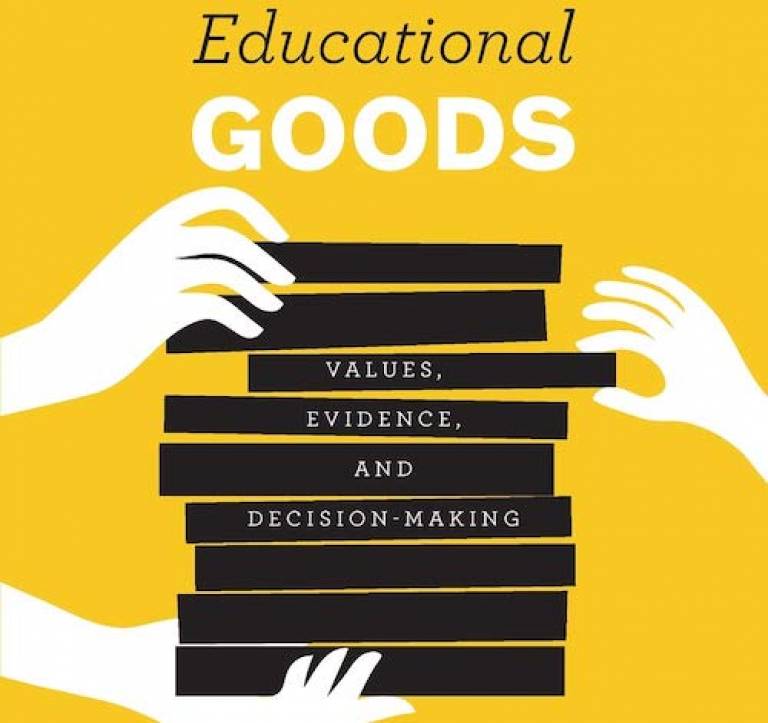Educational Goods: Values, Evidence, and Decision‐Making—A Summary
9 October 2020
Professor Adam Swift's new book hopes to influence the educational research community as well as decision makers.

The Journal of Philosophy of Education has published a symposium on Educational Goods: Values, Evidence and Decision-Making (Chicago University Press, 2018). The book is the outcome of an interdisciplinary and international collaborative project, funded by the Spencer Foundation, between UCL Professor of Political Theory Adam Swift and Harry Brighouse (Philosophy, Wisconsin), Helen F. Ladd (Public Policy, Duke) and Susanna Loeb (Education, Brown).
We spend a lot of time arguing about how schools might be improved. But we rarely take a step back to ask what we as a society should be looking for from education. What exactly should those who make decisions be trying to achieve? Educational Goods proposes a method for combining values and evidence to reach decisions and offers a detailed account of how this method might be applied in various policy domains. One aim is to enrich our vocabulary – and our thinking – about the goals of education: to offer a broader vision than the narrow focus on cognitive skills and test scores. Another is to provide a manageable way to bridge the gap between values and policies. There is, rightly, much talk of the need for evidence-based policies, but policy makers must also think clearly about what it is their policies are trying to achieve. Policy should be data-informed but values-driven.
In the symposium, after a brief summary of the book, five philosophers of education offer comments on and critiques of the normative framework they propose. The authors then provide a detailed response.
 Close
Close

